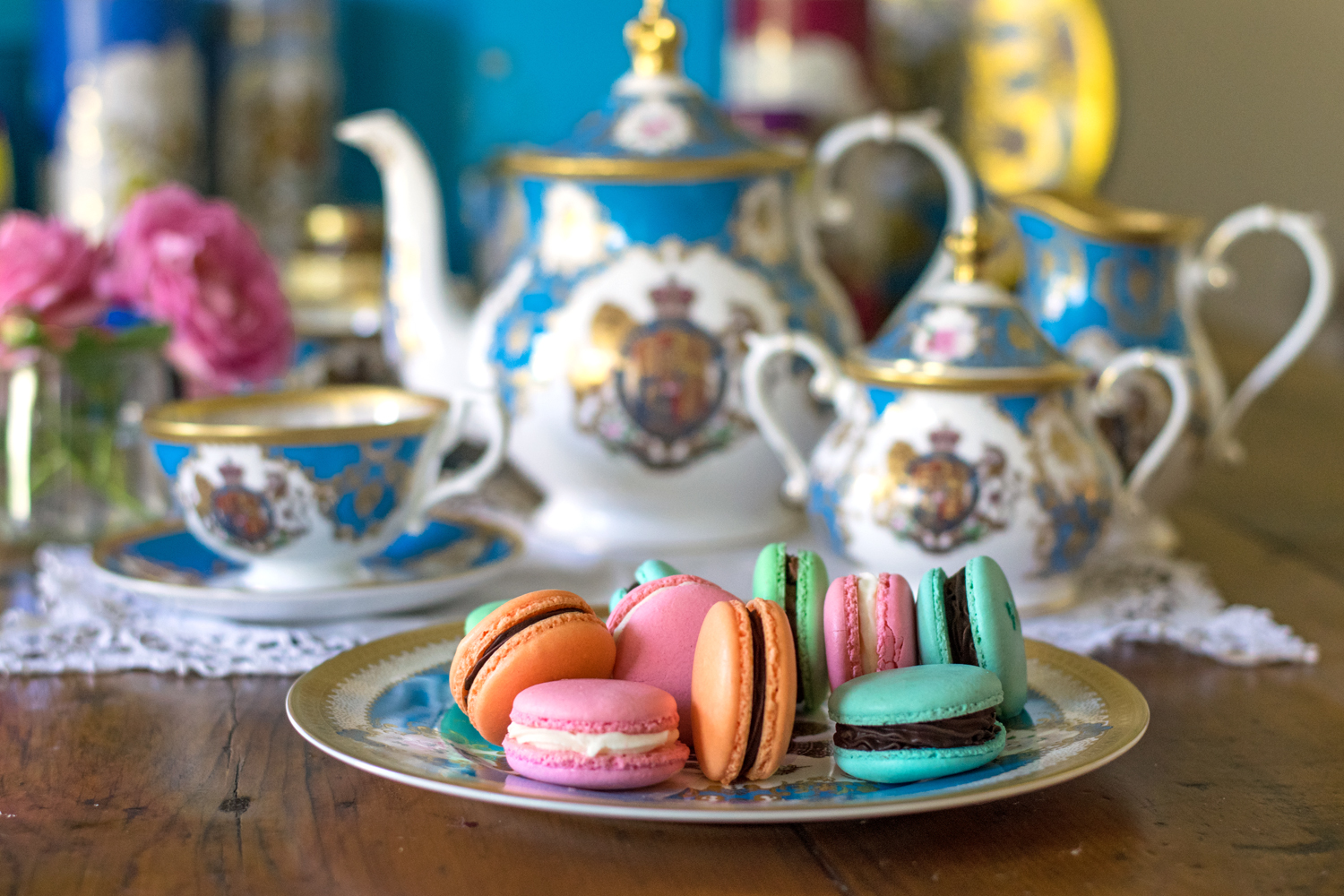New Beginnings
There is something inherently exciting about something new. It brings a new awareness to everything around us– as if we see the world for the first time in high definition color. We get a new car, and suddenly we are noticing how many of that model are on the road, though we never noticed it before. And this year, perhaps more than any other, we are craving a new year– a new beginning– a fresh start.
The year 2020 will go down in my memory as one of the most unpleasant years of my experience. I can’t say that it was dangerous or life threatening for me, because it wasn’t. It was a much more insidious kind of danger– the kind of enemy that is unseen and unpredictable. This year we were in danger of the psyche. We were fighting an unseen enemy, even as panic rippled through everything and everyone around us. This year’s fight was seeing beloved small businesses close, through no fault of their own. It was seeing our children miss out on school and start to regress, despite our best efforts to help them keep up. It was seeing stores cleaned out of supplies and wondering if you were going to have to use the old Sears Roebuck catalogue for toilet paper. It was not fear like cannon fire– it was a much quieter fear, but no less scary for that. It was like tiny mice chewing away your underground cables of strength and security. It was waking up to discover that a tiny drop of unease had caused a gigantic puddle of fear overnight. It was realizing that many things we have long taken for granted– being able to buy what we need at the store, educating our children, giving a hug to a loved one . . . those things were not guaranteed.

I think often during these days of other times in history when people had shortages and deprivations thrust upon them. I think about the civilians of Britain during WWII– a period of history which has always fascinated me. Probably most of us know that certain goods were rationed during the war, but I doubt that many of us know exactly how stringent these rationing measures were, or how long they lasted. Believe it or not, rationing in Britain lasted for nearly a decade after the war was over as the country attempted to recover from one of the worst crises in its history. Can you imagine– the euphoria of learning the war was over, and then further learning that basically, for you, nothing was going to change? Months passed, and then years passed. Eventually I’m sure people just got used to the new horrible way and didn’t think about it much anymore.
When I was younger we were friends with a woman who had been a child in Great Britain during the 1940s during those rationing years. She said that she remembered her mom bent over the kitchen table counting up the family’s stamps to make sure that she had enough to do her marketing. Then her mom would ever so carefully store the rest in a jar which she kept with the family’s money– because rationing stamps were like gold in those days. Our friend remembered that the beef ration was 1/4 pound per person, per week. Imagine a McDonald’s quarter pounder with cheese– and that amount of meat was expected to feed one person for an entire week. It’s almost unthinkable. She said that her mother would get 1/4 pound of meat per person, then bring it home and so carefully ration it out in the meals through the week. She would mainly use the meat as flavoring, trying to make cheaper, more readily available vegetables, greens, and starches the “tummy fillers,” with the meat sparsely interposed for flavoring. She said that as the week went on the meals got more and more sparse– until they were basically cabbage and water. She remembers being so hungry, but there was absolutely nothing left in the house to eat. On Sunday her mother would make the best meal of the week– and they each got a small piece of meat on their plates. She looked forward to Sunday all week because it was the only day of the week where she got to feel full and finally quell that aching hunger. Yorkshire pudding became a British favorite because it took cheaper ingredients– mainly flour and water, and allowed the flour puff to to soak up the roast beef juices so that everyone could taste the meat without using so much of the week’s rations.

Each person received 1 fresh egg per week, and egg usage needed to be planned out in advance and eggs saved if someone needed to bake a birthday cake or holiday dessert. Fines were enacted for people feeding their pets food which was fit for human consumption. The government encouraged people to turn even the tiniest backyards into “victory gardens,” growing tomatoes, beans, and lettuces for household consumption. Families were encouraged to keep and raise rabbits for food. The husband of the lady I mentioned above remembers raising rabbits, and then crying so hard when the rabbits were turned into dinner that no one at the table could eat them, but just sat around the table with tears running down their faces.
Tropical fruits, such as oranges and bananas, all but disappeared. Many children age 5 and under who were told about bananas during the war refused to believe they existed, as they had never seen one. The song “Yes! We Have No Bananas!” became a tongue in cheek nod to the rationing of the day.
Food was not the only thing being rationed– gasoline for cars (you could lose your drivers’ license for a year for taking too much for non essential purposes), cigarettes, soap (both for personal and household cleaning), and clothing were all restricted as well. The lady mentioned above told me that her mother would save all the family’s clothing ration stamps all year to try to buy her children clothing for school. She remembers that her mother had the most tattered, ratty coat, which she patched over and over until it was basically a rag held together by hope and a prayer, because she was saving her clothing allowance for her children. The lady remembered that since she was one of the younger children she always had clothing and shoes that did not fit properly– either her shoes were too big or too small, and she always had blisters. Many times she wore boys’ recycled clothing that her brothers passed down and her mother tried to remake to look more feminine. Nothing was wasted; all garments and shoes were literally worn out, and then worn a little bit more. A famous phrase circulated among the populace which went, “Use it up, wear it out. Make it do, or do without.”

Women were encouraged to “look their best for victory,” in a constantly running ad which explained that women had a national responsibility to look their best to give “the boys” some positive morale and something to look forward to when they came home. Women made makeup out of everything from vegetable dyes to animal fat and pieces of charcoal. Beetroot juice stained lips “Victory Red,” because “red lips never go out of style.” Razor blades and cigarettes were reserved for “our fighting men,” so women had to also get creative when it came to grooming. Many women rubbed a pumice stone over their legs to remove unwanted hair. The stone took off the hair, but sadly also took off much of the skin with it.
Women were expected to look glamorous even when wearing coveralls and bandanas– forming their hair into “victory rolls” which allowed a little bit of glamor while also keeping hair out of the face. Rosie the Riveter became the poster child for working women who were strong, capable, and glamorous. No one seemed to consider that these women who were pulling double duty at work and home, making meals out of their scraps of rations, and also trying to dye their lips red with beet juice needed and deserved a darned cigarette.

Ration fraud attempts became commonplace but were prosecuted severely– people could spend up to 4 years in prison for counterfeiting ration books. A common black market practice was keeping and using the ration books of the dead (often slain soldiers) to feed the living family members that remained. Even after the war ended the government was loathe to let go of the control that they had exerted over the people during wartime. One committee recommended that Britain keep rationing indefinitely, a declaration which was met with an outcry of rage and overturned quite handily when it came to a vote.
When the men started to return after the war was over, things got even tighter. Women who had longed for husbands, fathers, brothers, and sons to return and finally lend a hand to their backbreaking work and money shortages now found that their men were unable to find work. Sometimes the men’s former places of employment had closed during the interim– many small businesses were now shuttered or run by the government. Some found that women were now working their jobs more cheaply, and store owners didn’t want to pay the men the same salaries which they had received in pre-war times. Sometimes the men were shell shocked and wounded; before the advent of veterans’ relief bills and care, these men were “lucky to be alive” and expected to fend for themselves when they went home. If they complained about the chronic pain or inability to find work now that they were physically handicapped, they were reminded that “many of the other boys were not so lucky.”

Women found that they were now expected to feed extra mouths on the same amount of ration books. In addition to now carrying an extra load for more people whom they had been greatly looking forward to helping them, they instead had grouchy, depressed men on their hands who many times required extra assistance and sometimes even nursing care, which the women were also expected to provide. Depression was rampant, but no one talked about it. Interestingly, in pre-war Britain the largest number of suicides were female. After the war male suicides nearly doubled, while female suicides decreased by almost half. People were overwhelmed and depressed– while “finally coming home” had been all they were living for, they discovered that home was not the place they remembered when they finally got to return.
Far from being a place of comfort, home became a prison. Much like today, people were forced to remain at home. Their reasons may have been different from ours today (lack of gasoline, wartime injuries, lack of funds for anything other than the most dire expenses), but the results were the same. People had to stay home, making do with much less than they needed, side by side with family members who were also stressed and snappish as a result of the home imprisonment, and it started to eat away at them. Young men which had left full of cheer and boyish happiness returned as old men, somber and melancholy. Sometimes their bodies were destroyed– and even more often their minds were. At night they were plagued with traumatic memories of battlefields so vicious that it was difficult to differentiate the living from the dead. They would wake up sweating and screaming in the middle of the night, trying to escape out of their bedroom windows in a fear so great that their families were alarmed. PTSD was in its barest infancy stages of being recognized and understood– and much of the population had little knowledge and even less tolerance for the shell-shocked minds and bodies of those “lucky enough to return.”

Many soldiers started drinking heavily, becoming functioning alcoholics as a way to cope with the constant nightmares which kept their minds in a prison without walls. Men would wake up drenched in sweat, screaming and crying at night, keeping their families walking on eggshells even as they tried to navigate their own suffocatingly lonely version of hell. One daughter described her father’s having nightmares every night for the rest of his life– dreaming about trying to retrieve the bullet-riddled bodies of lost comrades, and finding that the enemy had removed the dead men’s boots and placed explosives in them so that those trying to retrieve the bodies would be blown up. This had been a new, more horrible kind of war– nothing was sacred, even the dead bodies of fallen heroes. Men started to prod dead bodies with a stick first to make sure that the corpse was not booby trapped before they attempted to to retrieve it for the family. For the first time Red Cross stations were also a target, previously having been respected by both sides as a place of solace for the wounded.
Doctors were at a loss of how to fight this new, invisible enemy. Mostly they referred shell-shocked patients to psychiatric facilities where they were subjected to horrifying treatments such as electroshock therapy and even physical bindings so tight that they lost feeling in their limbs. Often doctors prescribed little understood sedatives or narcotics– leading to more problems than they ever solved. Many people felt that these illnesses were “all in the minds” of those suffering, and that more attention should be given to “real” medical problems. The problems were in their minds, all right– this disease was like an invisible cancer attacking the memories, the outlooks, and anything beautiful and worth living for in their lives. These soldiers became a generation of ghosts, as transparent and inconsequential as spirits, drifting through life in a haze of traumatic loss that, in many tragic cases, continued until their deaths.
A new, disturbing phenomenon began to appear– something that doctors called “second hand trauma.” It was discovered that families (most notably the children) of these shell-shocked men who had returned home were experiencing similar feelings of terror, trauma, and mental instability as those experienced by their fathers. One doctor likened what we now understand to be PTSD suffered by combat soldiers as “one emotionally boiling stewpot in which all members of the family are forced to remain.” Yes, there were a record breaking number of marriages after the war, but that statistic tells only half the story. Unbelievably, estimates are that 42% of these wartime marriages ended in divorce, as women and children found their new home environments too toxic in which to live.

One lady wrote about her experience growing up as a child in the late 1940s and early 1950s, with a father who had returned from the war with severe depression and undiagnosed PTSD. She remembers constantly feeling tension so great in the home that she could hardly breathe, as if the entire family was living in a constant state of walking on eggshells, never sure what would set him off. She remembers her father’s screaming in the night, then her mother’s voice trying to quiet him. She remembers her father quietly becoming a functioning alcoholic, trying to numb his pain and “get over it” so that his family could have a normal life. Finally, unable to take it anymore, her mother moved out and divorced her father, taking the children with her to a tiny, cramped apartment. They saw her father on Sundays, in the dark living room with the shades drawn while he smoked so many cigarettes that the air was hazy, drinking from his flask at 10:00 in the morning and asking them in a slurred voice about school. She dreaded those visits.
She recalled that years later she went to visit her father in the nursing home where he spent the last few years of his life. He was feeble now, and still troubled by night terrors and memories of horrible things that no young man should ever have to see or be asked to do. He looked up at her with red, watery eyes and said, “I always loved you. I hope you know that. And I did the best I could.” And, at that moment, she says she forgave him– because she knew he really had been doing the very best that he could. He was a poor, broken boy who had been forced to become a man far too early, and never recovered from it.

So why do I mention this story? Even though the circumstances are different, many of the struggles are the same. People today are struggling– feeling isolated, depressed, and lonely. They feel like their struggles are “all in their mind,” and they are “lucky to be alive.” And yes, we are lucky to be alive. But life is about more than breathing in and out. Life is about loving others– about connection and joy and something to look forward to and hope for. Currently it is like we are living a life that has had the sparkle knocked out of it. Yes, we are breathing in and out. We are getting groceries and working from home. We are “getting life done.” But we aren’t living it, and it’s starting to show. We are snappy with the family members who seem to be everywhere when we crave just one single moment to ourselves. We are annoyed that our social activities and the things we enjoy are taken away from us. Just once we would like to eat a meal that we don’t have to prepare. We would like to breathe without a mask smothering our faces. We would like to watch the news just once without seeing red numbers of doom floating across the screen.
It’s ok to feel that way. It’s ok to say, “I’m feeling tired and depressed. I don’t have much motivation to do anything right now. I’m feeling lonely and isolated, and I’m struggling.” It’s ok to feel the loss of those things that have been taken from us– holidays with loved ones, weddings, graduations, meals shared around the table with those you love. It’s not wrong to let yourself grieve for those things– those beautiful things that you love that have been taken from you. You are not weak for having needs. You are not a failure when you can’t hold up the weight of the world by yourself every hour of every day.

This is a new year. A new start. A new beginning. Little by little, I believe we will start to see some of those stolen things returned to us this year. I believe we will start to feel those chords of imprisonment snap, one by one, little by little, inch by inch. Slowly we will start to get back those things which we have missed so greatly over the past year. One day we will turn around, and it will be over.
And we will be stronger.
Happy New Year my friends. May this one be our best year yet.
You did it. And I’m just so proud of you.

Disclosure: This post may contain affiliate links, which just means that we get a few pennies if you purchase through our link. I never recommend products that I don't personally use and love. Thanks!








Well and truly said! It is indeed worthwhile to ponder over these to understand what is really essential in life!
It is said that prior to the second world war, oppression, privations and daily exertions for mere survival were part of the general populace. Travel was an adventure if we survived it, not a vacation! However, since then, we have enjoyed life for the most part. There were and still are significant exceptions to this around the world, sadly.
A century ago, the privations of an earlier war was followed by the Spanish flu pandemic followed by the roaring twenties! The hope is, as we bid adieu to the year and decade, we will come roaring back in the 2020s! Here is to history repeating itself – at least some of it!
Happy New Year!
These are amazing words with a deeper meaning than I ever thought I would experience in my life. But here we all are living this way. Fingers crossed, willpower and inch by inch we make 2021 the best year ever.
Thanks for sharing this my dear friend.
Love you PB <3
Love you too PB <3